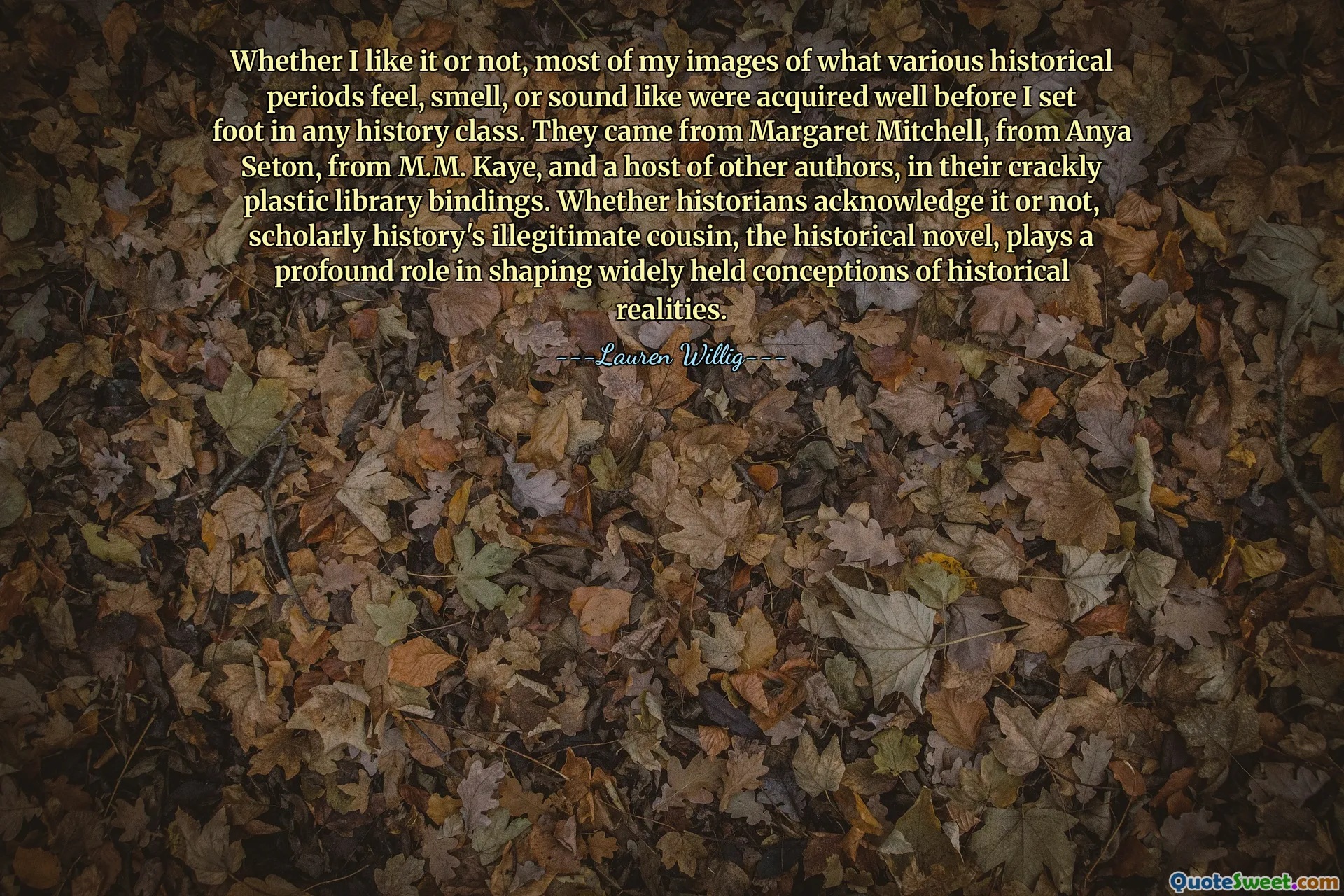
Whether I like it or not, most of my images of what various historical periods feel, smell, or sound like were acquired well before I set foot in any history class. They came from Margaret Mitchell, from Anya Seton, from M.M. Kaye, and a host of other authors, in their crackly plastic library bindings. Whether historians acknowledge it or not, scholarly history's illegitimate cousin, the historical novel, plays a profound role in shaping widely held conceptions of historical realities.
This quote highlights the profound influence that historical fiction and popular literature have on shaping our mental images and perceptions of the past. Even before formal education in history, many individuals develop their understanding of different eras through novels, stories, and cultural portrayals crafted by writers such as Margaret Mitchell, Anya Seton, and M.M. Kaye. These authors conjure vivid worlds, sensory details, and atmospheres that leave lasting impressions, often more visceral than academic accounts. The comment suggests that these works, despite their sometimes fictionalized or romanticized narratives, serve as a powerful and legitimate source of historical perception for the general public. This raises interesting questions about the nature of historical knowledge—what it means to 'know' history and how popular narratives influence collective understanding. It underscores a broader issue: the importance of recognizing the impact of storytelling and media in shaping historical consciousness, sometimes even more so than scholarly research. While academic history aims for accuracy and critical analysis, fictional accounts often evoke emotional and sensory connections that make history more accessible and memorable. It also hints at the blurred lines between fact and fiction in historical understanding and challenges us to consider how both forms collectively contribute to our conceptions of the past. Ultimately, the quote reminds us that history is as much constructed through stories and imagination as it is through research and facts, emphasizing the role of narratives—both reputable and popular—in forming our collective memory.











